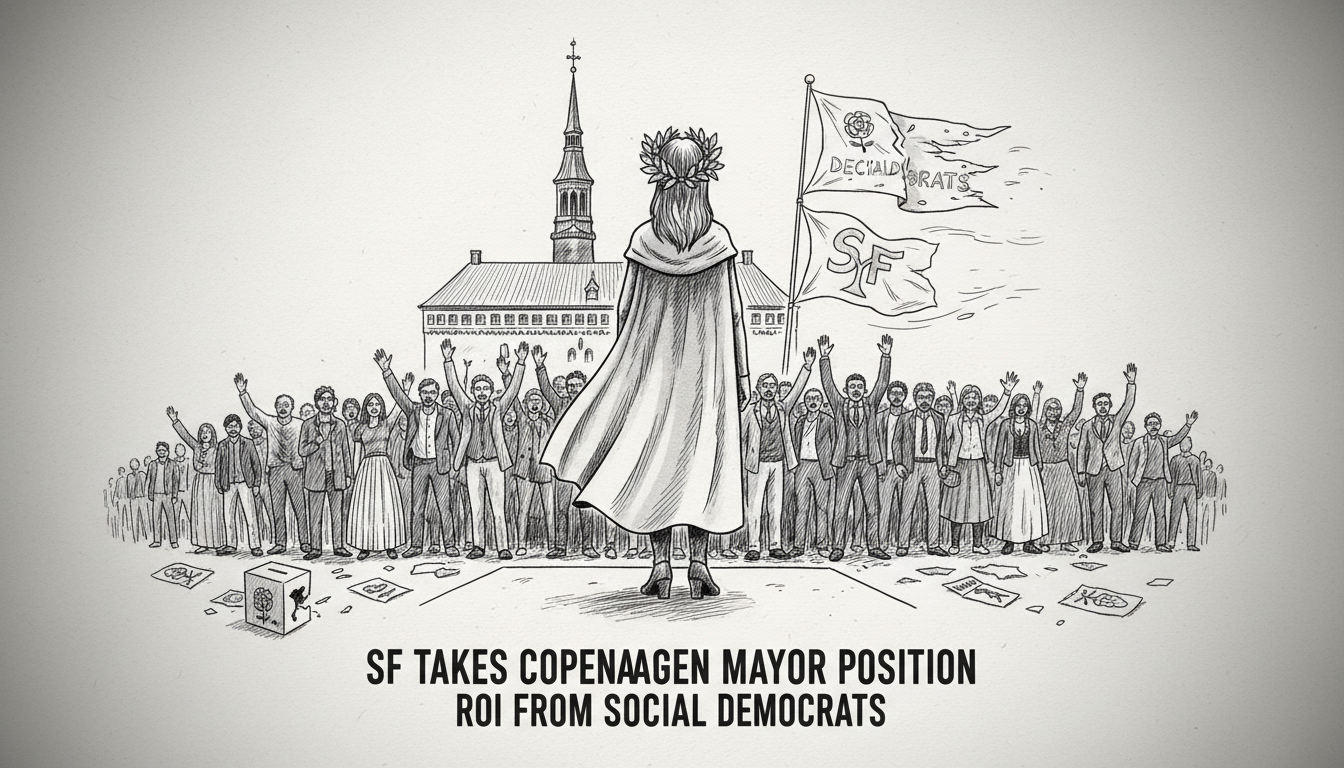Copenhagen's political landscape has shifted dramatically as the Socialist People's Party (SF) secured the mayor's office, ending over a century of Social Democratic leadership in the capital. Sisse Marie Welling from SF will become the new mayor following broad coalition negotiations that excluded the Social Democrats.
The political realignment became clear Wednesday when multiple parties formed a governing majority in Copenhagen's City Council without Social Democratic participation. This marks the definitive end of more than 100 years of Social Democratic control in Copenhagen's municipal government.
Welling expressed enthusiasm about the new leadership during a press conference at City Hall. She stated that the power shift represents healthy democratic development for the city. The incoming mayor emphasized her eagerness to begin working with coalition partners to address Copenhagen's challenges.
Despite finishing second in the municipal election with 17.9 percent of votes, SF managed to build a broader coalition than the Red-Green Alliance, which actually won the election with 22.1 percent support. Welling emerged as the most acceptable compromise candidate among the 55 members of Copenhagen's City Council.
The governing coalition includes an unusually broad spectrum of parties spanning the political landscape. The Red-Green Alliance, Alternative, Venstre, Conservatives, Social Liberals, Liberal Alliance, and Danish People's Party all joined the agreement that secured Welling's position.
This represents only the second time in Copenhagen's history that an SF politician has held the mayor's office. Back in 2004, SF's Helen Hedemann served as acting mayor for just two days during a transition between Social Democratic administrations.
The loss represents a crushing blow for Copenhagen's Social Democrats, culminating what party insiders describe as a disastrous municipal election performance. The party achieved its worst electoral result in recent memory nationwide, with particularly poor showing in the capital.
Prime Minister Mette Frederiksen had attempted to reshuffle Copenhagen's leadership last year by moving then-mayor Sophie Hæstorp Andersen to a national ministerial position. The plan involved installing former Social and Housing Minister Pernille Rosenkrantz-Theil as the new Copenhagen mayor.
Meanwhile, Lars Weiss served as interim mayor during the transition period. However, Rosenkrantz-Theil failed to deliver electoral gains for the Social Democrats. The party lost two seats on the City Council, reducing their representation to just eight members with only 12.7 percent of votes—a three percentage point drop from the previous election.
In a telling sign of their diminished influence, Social Democratic representatives weren't even invited to the coalition negotiation rooms by the dominant parties. Rosenkrantz-Theil's aggressive campaign strategy, which included proposing free daycare in Copenhagen and warning voters against a Red-Green Alliance mayor, appears to have backfired with potential coalition partners.
Political analysts note this power shift reflects broader trends in Danish urban politics, where traditional party loyalties are weakening in favor of issue-based coalitions. The broad alliance supporting Welling demonstrates how Copenhagen politics increasingly operates across traditional left-right divides.
The change comes as Copenhagen faces significant challenges including housing affordability, climate adaptation, and post-pandemic economic recovery. The new coalition will need to balance diverse political priorities while maintaining the city's reputation for effective governance and quality of life.
International observers will watch closely how this political experiment unfolds in one of Europe's most progressive capitals. The success or failure of this unusual coalition could influence urban governance approaches across the Nordic region and beyond.

